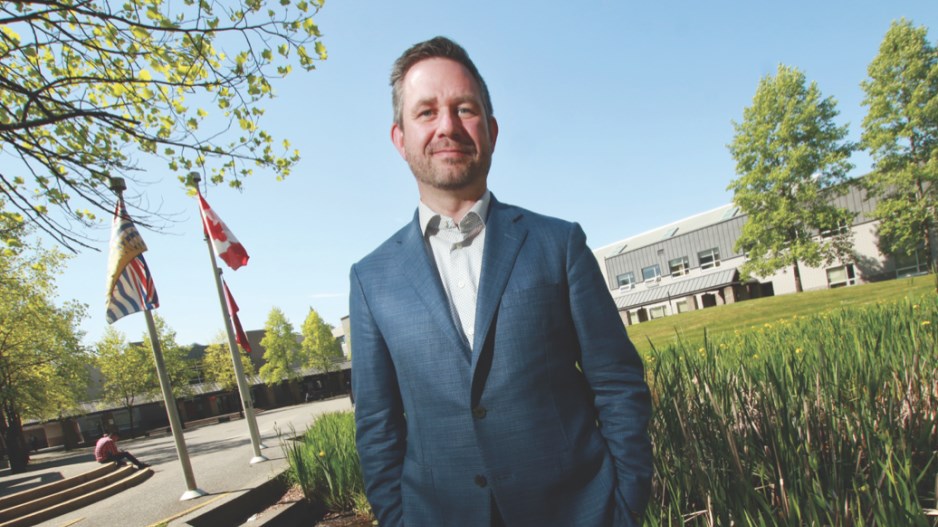Despite months of preparation for the legalization of recreational cannabis, there is still a lot of confusion at B.C. colleges and universities about where and when users will be able to light up – and which schools will lead the way in teaching about the drug and its social, health and business ramifications.
Rules governing cannabis consumption on school grounds remain varied among post--secondary organizations, as does the development of new courses of study about what will be a massive economic driver of the Canadian economy.
Large-scale universities like the University of Victoria (UVic) and the University of British Columbia (UBC) have announced they will have designated areas for cannabis smoking and vaping to ensure a safe environment is provided for students.
“Under the revised Policy 15, which is the UBC smoking policy, we are planning on treating the smoking of cannabis in the same way that we are currently treating the smoking of tobacco,” said Michael Serebriakov, legal counsel for UBC.
“On the Okanagan campus, smoking will be restricted to smoking gazebos and, as far as I understand it, designating several of them to be cannabis-permitted while the other ones will be tobacco use only.
“On the Vancouver campus, smoking cannabis will be prohibited indoors, inside bus shelters and within eight metres of doors and air intakes.”
UBC has developed little in the way of curriculum about the cannabis industry and does not have plans for future course offerings. Island counterpart UVic has not developed any industry-specific courses either but, like UBC, it has plant experts eager to further research health implications of cannabis consumption.
UBC and UVic, given their expansive campuses and access to housing, will not outright ban cannabis use on campus, while schools such as Douglas College, which does not offer student housing, will adopt a strict restriction on cannabis consumption on school grounds.
“Within the smoke-free policy, we have indicated no smoking of any kind,” said Sarah Dench, Douglas College’s associate vice-president of academic and student affairs. “We want a safe and healthy working and learning environment and we don’t want to compromise anyone’s safety or health.”
Douglas College has stated is has no cannabis-related curriculum in the works.
The British Columbia Institute of Technology (BCIT) has developed a no-cannabis policy as well and has not developed cannabis-related courses.
However, BCIT is home to Paula Brown, Canada Research Chair in Phytoanalytics (plant-based medicines). Brown and her team are developing an open-access instruction manual that will guide cannabis research with the aim of broadening public knowledge of the drug and its effects.
Kwantlen Polytechnic University (KPU) has been expanding not only its presence on the post-secondary spectrum – the institute recently opened its fifth campus location in Surrey’s Civic Plaza – but also its place in the development of formal cannabis industry career training.
“We are building this industry from scratch,” said David Purcell, director of emerging business at KPU.
KPU has been offering cannabis career training courses for over three years and has plans to continue to build and diversify its offerings.
“[The cannabis industry] is going to need a large number of skilled workers, and these types of [cannabis-related] courses and our efforts to create more of these types of courses can provide the skills necessary to take advantage of this opportunity,” Purcell said.
Smoking and vaping of tobacco or cannabis is prohibited on all KPU campuses and properties. But policy-makers are still grappling with how best to handle what’s to come.
KPU is finishing up a policy that defines responsible use of drugs and alcohol and prohibits impairment in the workplace or classroom.
“You can’t be impaired,” said Jane Fee, KPU’s vice-provost of students. “We are not saying ‘no cannabis’ any more than we are saying ‘no alcohol.’ What we are referring to is the issue of intoxication.
“It is a little bit of a different take than some other places, and I am sure we will see a lot of policy changes over the next five years.” •




